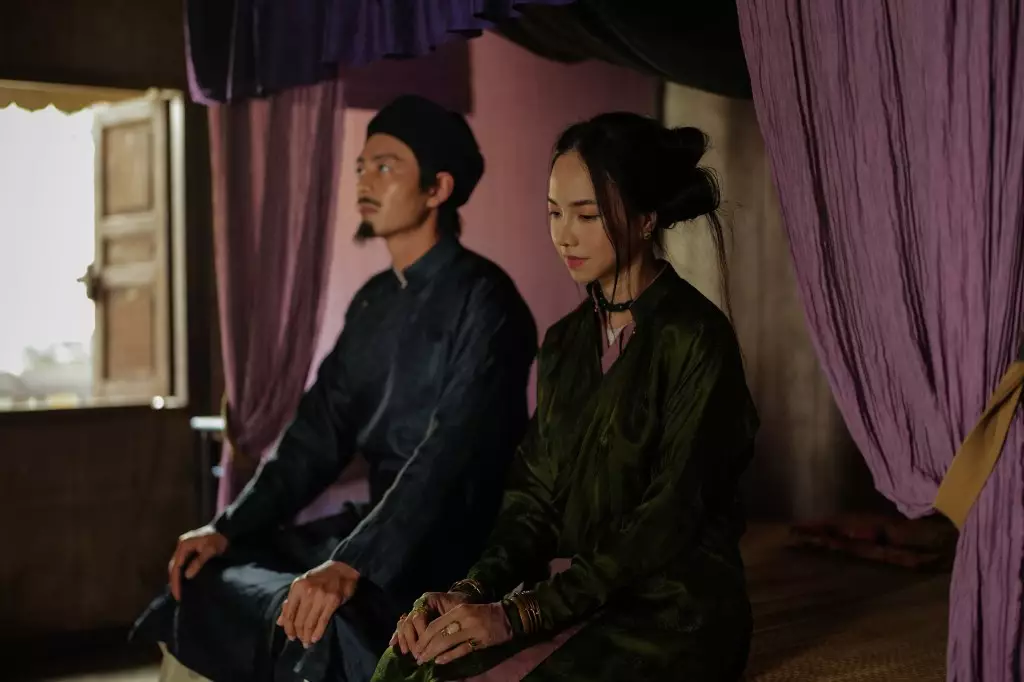In an era where global cinema is often dominated by blockbuster franchises and CGI-laden spectacles, “Detective Kien: The Headless Horror” stands as a resounding testament to the power and importance of cultural storytelling. Directed by Victor Vu, this film transcends the traditional horror genre, weaving rich historical elements into a thrilling narrative that keeps audiences on the edge of their seats. This isn’t just another horror film; it’s a cultural artifact that invites viewers to delve deep into Vietnam’s tapestry of history, tradition, and collective memory.
Drawing on the Nguyen Dynasty to set its chilling backdrop, the film illustrates just how significant locale and setting can be in enhancing a story. Much like a fine wine that gets richer with age, “Detective Kien” matures the horrors we have come to expect from thrillers by coupling them with sweeping vistas and historical authenticity. In this sense, Victor Vu has achieved a sort of alchemy: he’s transformed the heinous act of murder into a vehicle for historical exploration, thus enriching the viewer’s experience in ways that a simple scare-fest never could.
A Visionary’s Drive for Authenticity
Victor Vu’s candid statement about his passion for exploring Vietnam’s distinct beauty is not merely a director’s platitude; it resonates profoundly throughout the film. The meticulous attention to detail in production design, costumes, and props exemplifies a commitment to authentic representation that is often sidelined in commercial cinema. The fact that the film was shot in actual villages and homes that are over 200 years old not only reinforces the realistic portrayal of the time period but also serves as a clarion call for cultural preservation.
The cultural implications here are profound. In an age where rapid globalization threatens to homogenize artistic expression, Vu’s work emerges as a rebellion—an assertion that local stories hold universal significance. It is a potent reminder that there is a treasure trove of narratives waiting to be unveiled, focusing on heartbreaks, struggles, and triumphs unique to a culture, yet relatable to a global audience.
The Economics of Authenticity
As the film opens to a successful local debut and rapid international distribution, the financial implications are equally noteworthy. Earning 150 billion VND (approximately $5.8 million) in just eight days depicts the appetite Vietnamese audiences have for narratives steeped in their history and culture. Not only does this speak to the quality of Vu’s storytelling, but it also serves as clear evidence that when authenticity is prioritized, it pays dividends at the box office.
The revenue trajectory raises important questions about the film industry’s tendency to lean heavily on established genres and formulas, particularly in the West. Is it possible that a return to authentic narratives focusing on cultural roots could revitalize a franchise-weary audience? Vu’s success seems to suggest that cinema’s endurance relies not solely on flashy visuals but on the deeper emotional resonances that stories can convey when they honor their cultural origins.
Challenging the Standards of Global Cinema
With “Detective Kien,” the implications reach beyond finance and culture; this film also acts as a challenge to the standards of global cinema. By carving out a space for Southeast Asian stories on international stages, 3388 Films is taking a bold step that’s not just about showcasing foreign films but about redefining the very nature of what ‘foreign’ means in today’s interconnected world.
Thien A. Pham, the founder of 3388 Films, eloquently underscores this sentiment by emphasizing the joy of the shared cinematic experience. In an epoch where streaming has fractured the traditional movie-going milieu, emphasizing the communal aspect of cinema through a cultural lens is revolutionary. It begs the question: have we forgotten the magic and enchantment that comes from sitting in a dark theater, collectively holding our breath at the tension unfolding on screen?
A Hopeful Future for Local Narratives
As “Detective Kien: The Headless Horror” embarks on its international rollout, it serves as a beacon of hope not only for Vietnamese filmmakers but for storytellers worldwide who are yearning for the spotlight. In an age characterized by uniformity, the rich and intricate narratives of smaller and less represented cultures offer an alternative—a way forward that promises growth and diversity for global cinema.
Ultimately, this film is a reminder that horror is not merely about the fright; it is a vessel for exploring existential anxieties, cultural legacies, and human connections, making it compelling viewing for audiences everywhere.

